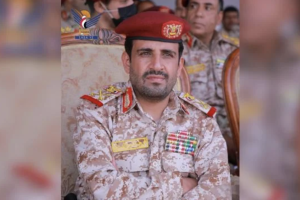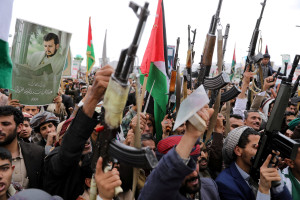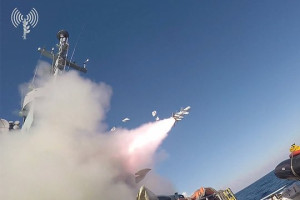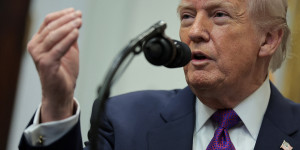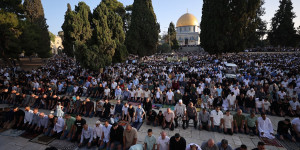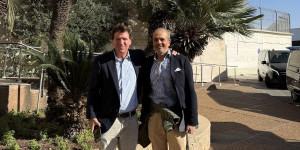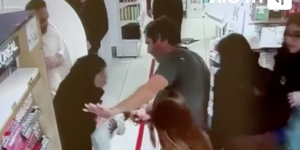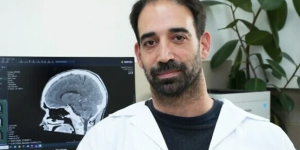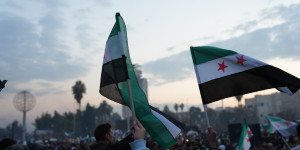Houthi release anti-Israel propaganda video, step up role as regional Iran terror proxy
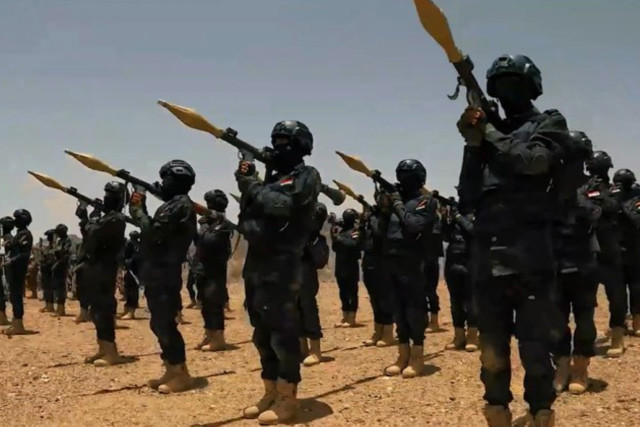
The Iran-backed Houthi terrorist militia in Yemen released a new propaganda video this week, closely resembling those of recent military drills published by Hezbollah in Lebanon.
The footage shows Houthi terrorists riding motorcycles and simulating an assault on mock “Israeli” buildings. The targets are marked with Stars of David – symbols of Israel and the Jewish people. The Houthis claim the video demonstrates their readiness for “confrontation with the Zionist enemy and its supporters.”
The video concludes with a message of solidarity directed at Gaza: “You are not alone.”
Hezbollah, the most powerful proxy of the Iranian regime, previously released similar videos threatening to invade northern Israeli communities. However, after the Israeli military eliminated several of the group’s top commanders – including late Secretary-General Hassan Nasrallah – and significantly weakened its operational capabilities, the Lebanon-based jihadist group reluctantly agreed to a ceasefire in November 2024. That ceasefire appears to still be holding.
With Hamas severely weakened and a current ceasefire between Iran and Israel, the Houthis have emerged as the only active member in the Iran-led alliance against Israel. While Hezbollah’s past propaganda videos posed a tangible threat to nearby northern Israeli communities, the Houthi video – featuring operatives on motorcycles – appears less credible, given the more than 2,000-kilometer (almost 1,250-mile) distance between Yemen and Israel.
Last month, Israel launched Operation Rising Lion, an unprecedented military offensive against Iran’s nuclear and military missile capabilities. The Israeli Air Force (IAF) and Mossad foreign spy agency also eliminated a large number of Iran's top military leaders, including senior nuclear scientists. At the time, Hezbollah rejected calls from Iran to join the fight against Israel.
After 12 days of war, Iran and Israel agreed to a ceasefire brokered by the United States and Qatar. Despite the end of the fighting, the Houthis have continued to launch missile and drone attacks at Israel.
Israel’s aerial defenses have successfully intercepted and neutralized the vast majority of the Houthi attacks. Nevertheless, the Houthi leaders have signaled that they are prepared to continue the aggression for as long as the war with Hamas continues in the Gaza Strip.
U.S. President Donald Trump, who has been pushing for a ceasefire in Gaza and the release of the remaining Israeli hostages, indicated that a ceasefire between Hamas and Israel could be reached soon.
With Iranian military defenses significantly weakened, the Houthis are reportedly aiming to strengthen their economy by positioning themselves as a major producer of Captagon, a drug previously manufactured by the Assad regime in Syria.
Mataher al-Shaibi, a Yemeni security official aligned with the internationally recognized government in Aden, recently warned that the Houthis’ emerging drug empire poses a threat to regional stability.
“This presents a severe threat to the security and stability of Yemen and the entire region,” al-Shaibi stated.
Yemen's Minister of Information, Moammar al-Eryani, expressed similar concerns, noting that the Houthis are exploiting the power vacuum left by the collapse of Syria’s pro-Iran Assad regime in December 2024.
“With Assad’s role diminished, the Houthis have stepped in to produce and smuggle Captagon, exploiting pharmaceutical facilities in Sana’a for production,” al-Eryani said.
The Yemeni minister called on the international community to unite against the Houthi threat, warning, “Unchecked, the Houthis will transform Yemen into a regional hub for narcotics trafficking, jeopardizing security across the Gulf.”

The All Israel News Staff is a team of journalists in Israel.
You might also like to read this:


